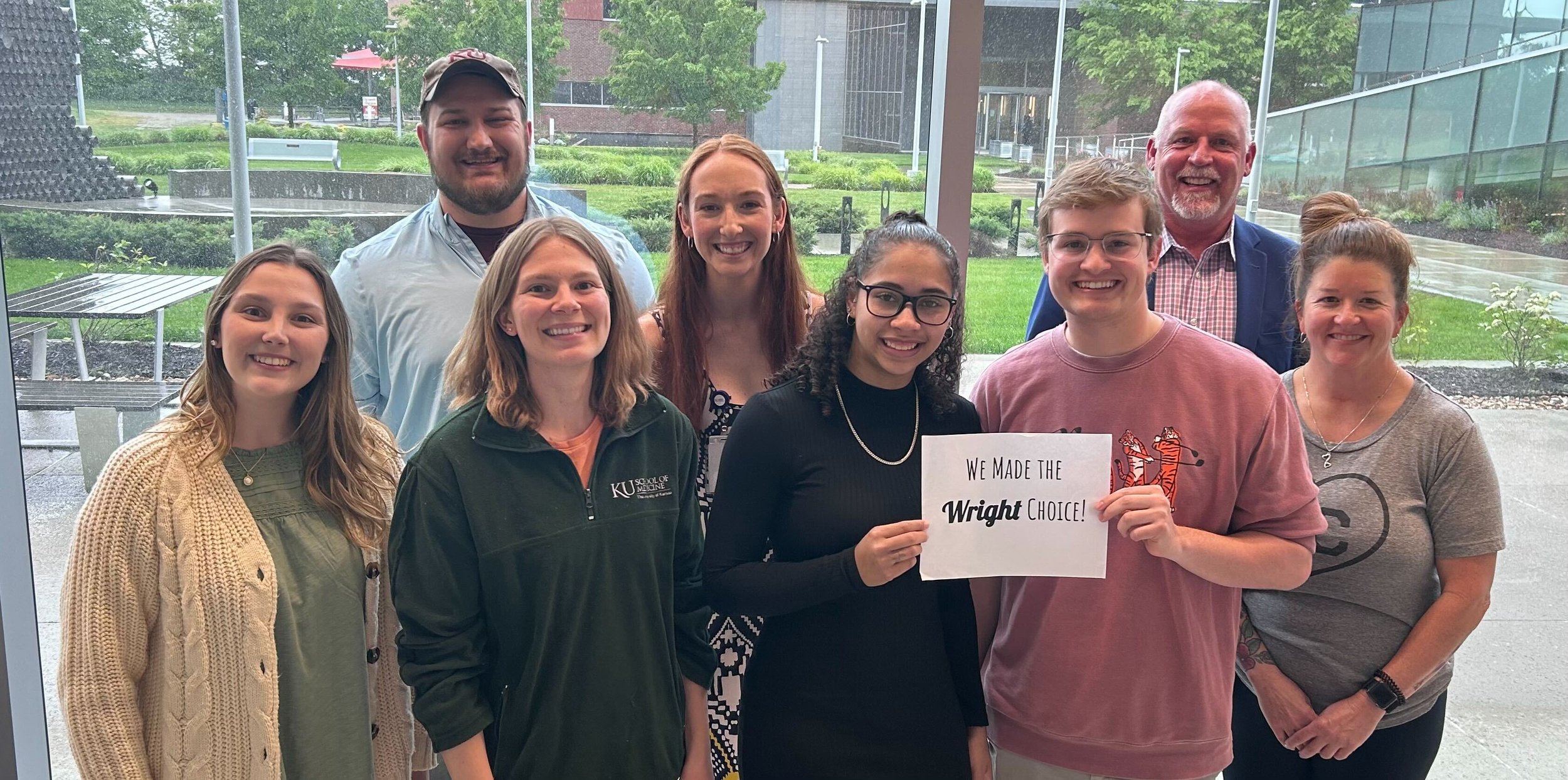Neuropathy, Pain, and Axon degeneration
We are a research laboratory in Kansas City that studies peripheral nerves, sensation, pain, and axon degeneration. Our laboratory, known as the Sensory Nerve Disorder Lab (SNDL), works to identify interventions and treatments to improve nerve damage, neuropathy and pain. Our laboratory has a rich history of training young scientists for careers in various academic, teaching, and industry careers.
SNDL lab photo May 2023!
SNDL lab photo, Summer 2023
New SNDL lab logo, Summer 2023
Our lab is interested in what causes axon degeneration and how to stimulate axons to grow.
As a general interest in peripheral nerves, we commonly assess the density of epidermal innervation in the skin of humans and rodents. This provides a sense of the health of these axons and their functional status.
SNDL lab photo, Summer 2023. Celebrating Dr. Jonathan Ender’s graduation and numerous awards and publications.
Current SNDL News
Aug 2023 - Congrats to Gentry Griese for being named the 2022-2023 IGPBS Graduate Student Scholar of the Year! What a great honor!
June 2023 - The SDNL welcomes three new PhD graduate students to the lab. Will Hauser, Lana Heslop, and Gentry Griese are joining to complete their PhDs. All three students are supported by the prestigious Self Graduate Fellowship, and we are excited to have them join our research group!
April 2023 - Congratulations to Jonathan Enders for defending his PhD dissertation with honors, including recognition as the best KU Dissertation in STEM via the Argersinger Best Dissertation Award! Dr. Enders now begins his postdoctoral studies in Milwaukee in the Cheryl Stucky lab.
Jan 2023 - KUMC news piece highlighting the new TOMADS T32 designed to help students train in basic and clinical research. KUMC News
Oct 2022 - The SNDL welcomes Abigail Wampler as a Clinical Research Coordinator. Welcome Abigail!
July 2022 - Congratulations to Sarah Thomas on being selected as a Kansas University Training Program in Obesity Complications (TOMADS) T32 Trainee.
August 2022 - July 2021 - Congratulations to Sarah Thomas on being selected as a TOMADS obesity complications T32 Trainee.
June 2022 - The Wright lab welcomes Sarah Thomas as a new graduate student. Sarah is an MD/PhD student who has finished her first two years of medical school and will spend the next several years completing her PhD in the Wright lab. Welcome, Sarah!
June 2022 - Dr. Wright was awarded a T32 Training Grant from NIDDK. Dr. Wright is a MPI with Dr. John Thyfault at KUMC and the training grant supports PhD and MD/PhD students in research areas studying obesity complications. The grant runs through 2027 and will support 2-5 graduate students. The grant has a strong focus on cross training students in basic and clinical research. (TOMADS T32)
April 2022 - The Wright lab begins a new clinical study designed to identify new biomarkers in the blood of patients with different forms of chronic pain. Entitled “The MEH Study”, this clinical study will explore the role of methylglyoxal as a biomarker of pain. The study is led by clinical research coordinator Jordan Elliott.
January 2022 - The lab welcomes Jordan Elliott to the lab as a new Clinical Research Coordinator. Jordan comes with industry experience and we are looking forward to having her grow our clinical and industry-sponsored research portfolio!
January 2022 - NIH funding for the laboratory continues for the next 5 years. Our longstanding R01 was renewed and will support us for the next 5 years!
July 2021 - Congratulations to Jonathan Enders on being selected as a Kansas University Training Program in Neurological and Rehabilitation Sciences T32 Trainee.
July 2021- Congratulations to Jonathan Enders for publishing his first first-author manuscript in Pain from the SDNL lab! (https://pubmed.ncbi.nlm.nih.gov/34252910/)
June 2021- Congratulations to Dr. Dan Elliott for defending his PhD dissertation! Dan now moves back into the medical curriculum to begin his clinical rotations as an M3.
April 2021- Congratulations to Dr. Yen Wu for publishing his paper on the roll of stress in burn injury in mice (https://pubmed.ncbi.nlm.nih.gov/33958242/).
Sensory Nerve Disorder Lab
Peripheral neuropathy stinks. Our lab works to identify mechanisms that lead to peripheral nerve dysfunction and degeneration. Dorsal root ganglion (DRG) neurons and peripheral nerves can be damaged by injury, disease, or even chemotherapy. Our work looks at the molecular pathways that mediate this damage. Our work is relevant to patients suffering from sensory dysfunction, pain and gait disturbances.
Our lab also studies ways to improve peripheral nerve sensation through dietary and behavioral interventions, exercise and pharmacological approaches. Our studies have shown that certain diets can reduce pain associated with obesity and pre-diabetes. Importantly, exercise can reduce pain as well.
Our lab is very translational as we perform basic science studies and then translate our findings to clinical studies in human patients. We currently have clinical studies in patients with pre-diabetes, type 2 diabetes, or chronic low back pain to understand how these conditions affect axons in the skin. Come join us!

Current Projects
Neuropathy associated with diabetes and prediabetes
Chemotherapy-induced neuropathy
Neural regulation of metabolism and glucose control
Dietary interventions to improve neuropathy
Exercise as a treatment for neuropathy
Epidermal innervation in patients with chronic low back pain
Consequence of nerve degeneration in innate immunity







